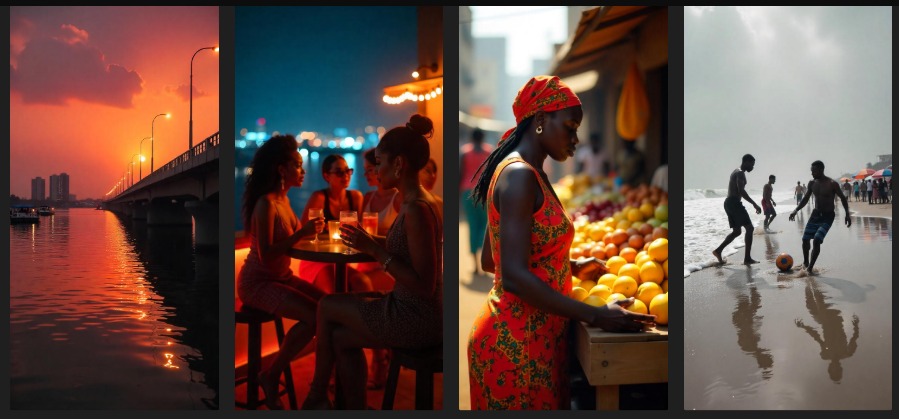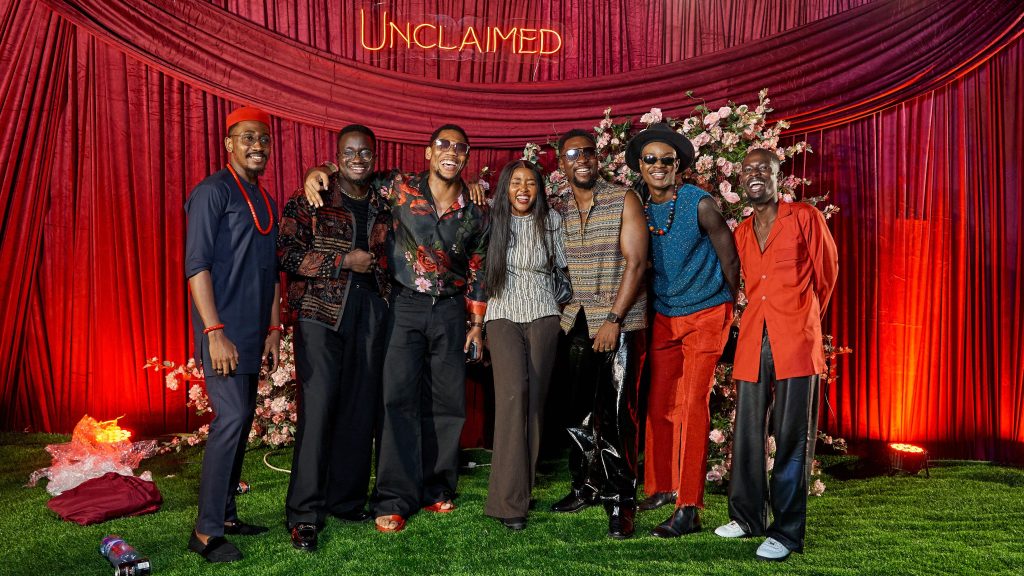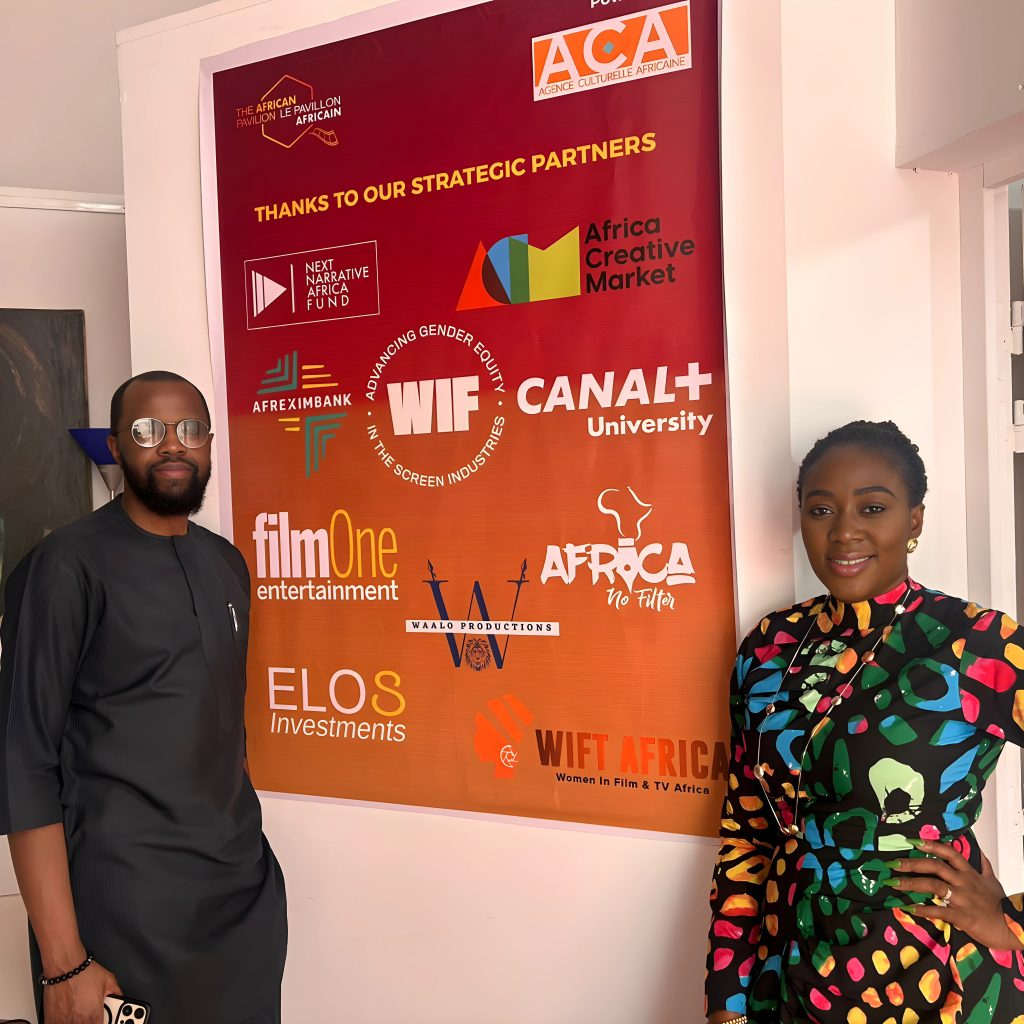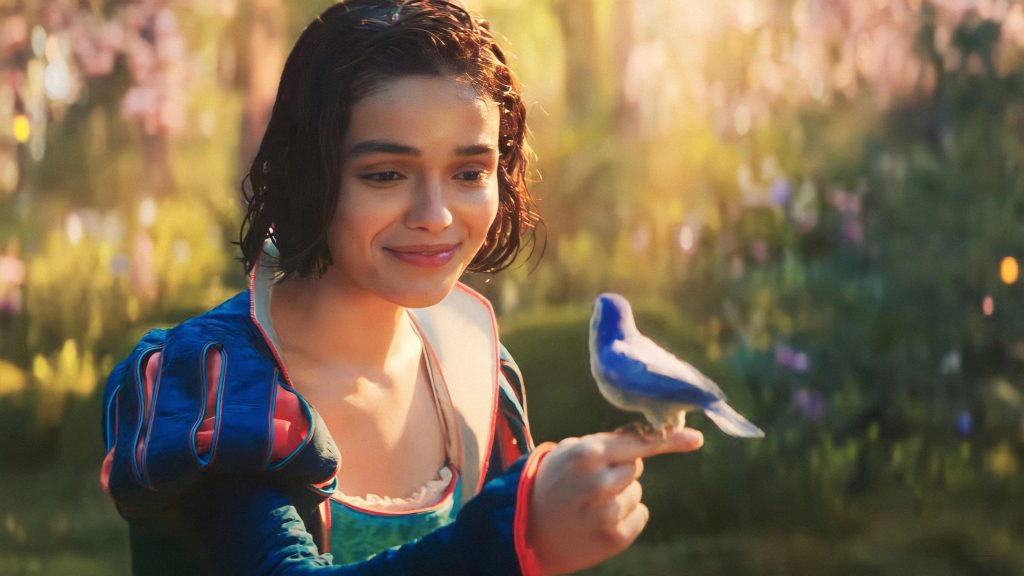The Future of Nollywood: Our Stories, Our Growth, Our Time

The Nigerian film industry also known as Nollywood has come a long way from the days of the ’90s when stars like Genevieve Nnaji, Stella Damasus, Eucharia Anunobi, Segun Arinze, and Ramsey Nouah were the names everyone knew, to now, when our industry is the third-largest film industry in the world. It has been a journey full of creativity and resilience. We still remember how quickly films were made back then, with whatever resources were on hand. Things have changed a lot since then our stories have gotten richer, production quality has improved, and streaming platforms investing in Nigerian content have finally put us on the global map. That growth is amazing, but it also brings new challenges and opportunities for all of us in the industry. So, if you are a filmmaker or creative trying to navigate Nollywood’s future, here are some tips to help you stay ahead and thrive: 1. Use Digital Platforms to Your Advantage Streaming services like Showmax are hungry for real Nigerian stories. Don’t just think of them as places to show your films. Use social media and analytics to engage your audience and grow your reach. 2. Focus on Quality Storytelling and Production Today’s viewers expect more. Better scripts, clearer sound, sharper visuals. You don’t need a huge budget to improve your film; simple things like a good microphone or editing software can make a huge difference. 3. Protect Your Work from Piracy Piracy still steals from us. Use tools like digital rights management, watermark your films, and register your work properly. Building good relationships with streaming platforms can also help keep your content safe. 4. Network Beyond the Usual Circles Collaboration will always be key. Go to film festivals, webinars, and industry events to meet new people both at home and abroad. These connections can open doors for co-productions, funding, and more distribution opportunities. 5. Keep Learning and Embrace Innovation The digital age gives us powerful tools to tell authentic, bold stories to the world. Stay up to date with things like virtual production and AI editing and keep improving your skills through workshops and courses. Yes, we still face challenges like piracy and infrastructure gaps. But Nollywood is full of resilience and creativity just like that Nigerian spirit that refuses to quit. We always find a way to make magic happen. The future of Nollywood is bright, but it’s not just the industry’s future, it’s ours too. We are excited to see where we will take it next, and we hope you are too.
Why Opening Weekend Still Matters, and How to Win It

Let’s be honest: a lot has changed in the way people watch movies. Between streaming, bootlegs, and everyone claiming they’ll “catch it later,” you’d think opening weekend doesn’t mean much anymore. But here’s the truth – it matters a lot! In the film scene, the first three days of release can make or break a title. That’s not exaggeration, it’s just how the business works. Opening weekend tells audiences whether a film is worth seeing. It tells cinemas whether to keep it on schedule or swap it out by week two. It even tells the media and investors if the film is “working” or not. You’ve probably seen it happen: one film gets all the buzz on Friday night, sells out early screenings, floods your timeline with hot takes… and suddenly it’s the only movie people are talking about. That’s not by chance, but by building momentum. And momentum starts with a smart, well-timed launch. When a film has a big opening weekend, everything around it expands. It gets better showtimes, more visibility, more press and even audiences who weren’t sure about it start paying attention – because we’re wired to want to be in the room where the excitement is happening. On the flip side, if a movie drops quietly and no one shows up? It’s hard to recover from that. Nigeria’s cinema landscape is fast paced. There’s limited screen real estate, new films every weekend, and a very vocal audience. You don’t get many second chances. So how do you win the opening weekend? Firstly, start early; get people talking weeks before your premiere. Tease your visuals, drop your trailer and make it feel like something is coming. If audiences don’t see or hear about your film at least five times before it opens, you’re already behind. That doesn’t mean just posting on Instagram; it means activating your cast, influencers, press partners, and fans. Let the hype build naturally and then press the gas. Secondly, don’t underestimate the power of timing! A great movie with poor showtimes can underperform simply because it wasn’t scheduled right. Work with the cinema to lock in your peak hours; Friday night, Saturday midday, Sunday after church. That’s when your audience is actually available to show up. Thirdly, make it feel urgent. One thing that works – especially in Nigeria, is the sense that something is hot right now. Limited screenings, sold-out premieres and the right messaging. Nobody wants to feel like they missed out, and if people think they can wait, they probably will, and this is how you lose momentum. Some recent box office wins got it right. Everybody Loves Jenifa tapped into nostalgia and community to create a billion-naira cultural moment. Iyalode owned its niche, built anticipation in the Yoruba-speaking audience, with a strong, focused first weekend. Sinners blew past expectations with the right mix of community support, conversations and PR stints. At the end of the day, the opening weekend is about perception. It’s about being the film people want to be seen watching, and owning the conversation before someone else does. And yes, films still find their audience in week three – but if it doesn’t turn heads in week one, it might not get the chance.
Filmhouse Group at Cannes 2025: Elevating African Cinema on a Global Stage

At Filmhouse Group, we believe in the power of African stories and at Cannes 2025, we witnessed firsthand how those stories continue to capture the world’s imagination. This year, FilmOne Entertainment proudly participated in Cannes, the platform designed to spotlight creatives within the global film ecosystem. Held during the renowned Cannes Film Festival, The Nollywood Conversations creates space for meaningful dialogue, global networking, and the elevation of African cinema on one of the world’s most prestigious stages. Our team, with the Nigerian International Film & TV Summit (NIFS) led and engaged in strategic industry conversations, connected with international distributors, and supported the visibility of Nigerian film in a global context. With a robust slate of Nollywood titles, upcoming co-productions, and a growing network of international collaborators, FilmOne Entertainment continues to play a leading role in shaping the next chapter of African storytelling. We were particularly proud to be part of panel discussions focused on opportunities to present our African stories for global screens areas where FilmOne Entertainment is deeply invested. Cannes also provided the opportunity to explore new partnerships that will help bring African narratives to broader audiences and strengthen the pipeline from local talent to global screens. Our presence at Cannes reaffirms our mission: to champion African voices, support local talent, and create opportunities that ensure African cinema not only thrives at home but leads on the world stage. As the conversation around representation and access continues to evolve globally, Filmhouse Group remains committed to driving visibility, growth, and innovation for Nigerian and African cinema. We are building more than films. We are building a legacy.
Sinners: How Michael B. Jordan And Ryan Coogler Are Changing The Horror Narrative

Michael B. Jordan and Ryan Coogler are a force to be reckoned with. From Fruitvale Station, based on a true-life story, to Black Panther, our own superhero dream, and now Sinners, their newest horror-thriller masterpiece, this dynamic duo keeps proving they’re not here to play. Michael B. Jordan is a class act and Ryan Coogler is a genius. The way they move individually is powerful, but together? Unstoppable. Beyond their incredible track record, it’s the brotherhood they share that stands out: two Black men holding each other up, making waves side by side, and telling stories that reflect us, challenge us, and stay with us. Sinners follows Smoke and Stack, identical twin brothers who return to their hometown hoping for a fresh start. But instead, they face supernatural forces that bring their past, their pain, and their bond into sharp focus. It’s intense, it’s layered, and it has got that signature Jordan-Coogler touch: authentic, bold, and deeply human. But what makes Sinners different from your typical horror film is how it leans into the why behind the fear. Horror, at its best, is never just about jump scares or gore, it is about metaphor. It is about the monsters we carry, the traumas we bury, and the truths we run from. The film draws on the classic vampire style and is interwoven with history set in the Jim Crow era of the 1930s with powerful music and one detail stands out: vampires must always be invited in. It’s such a small rule, but it speaks volumes. Historically, it’s a symbol of consent, vulnerability, and the dangers of opening ourselves to the unknown. In Sinners, this idea transforms what happens when the thing you let in isn’t just supernatural, but something you’ve been running from all your life? This reimagining isn’t just clever it’s powerful. Especially in a genre that has often sidelined Black characters or portrayed them in a negative light. Jordan and Coogler flip that script. They centre Blackness, complexity, and kinship. They show that horror can be personal, poetic and spiritual all at once. Since its release in West Africa less than two weeks ago, Sinners has earned over ₦300 million and counting an extraordinary feat for any film, but especially for one in the horror genre. Horror has traditionally been underrepresented at African box offices, often considered niche or too culturally specific. But Sinners is different. It proves there’s an appetite for elevated, Black-led horror that resonates with us. Compared to other horror titles released in the region, Sinners is already outperforming expectations both in revenue and resonance. It’s not just selling tickets; it’s starting conversations. And that’s the power of storytelling when it’s done with heart, purpose, and vision. Jordan and Coogler are changing the game. Their films aren’t just visually stunning they are emotionally rich. They create space for complexity. For Black men to be soft and strong. For community, for struggle, for love, and for resilience. They’re shifting the culture, opening doors, and reminding us all that when we own our narratives and collaborate with those who see us, we create magic. Sinners isn’t just another film. It’s a statement. And once again, Michael B. Jordan and Ryan Coogler are leading the charge. As Kendrick Lamar would say ‘’ I am a sinner who’s probably gonna sin again Lord forgive me, Lord forgive me for things I don’t understand.’’
Top 5 Movies That Flopped at The Box Office

In the world of films even with big budgets, star-studded casts, and all the buzz, some movies still fall flat at the box office whether in Nollywood or Hollywood. Why? It’s not always about how much money went into making the film or how hard the marketing team pushed. Sometimes, it simply comes down to this: the film didn’t cater to the audience’s tastebuds. Here are five films that had the potential for box office success, and how smart movie marketing could have changed their stories. Chief Daddy 2: Going for Broke had all the right expectations riding on it. The first film was a massive hit, so naturally, everyone was excited for the sequel. But when it hit theaters, the response was lukewarm. The story felt rushed, and the charm of the first film just wasn’t there. A little more pre-release engagement, like test screenings and audience feedback, could have helped fine-tune the narrative and manage expectations. Getting people excited early on could’ve turned the tide for this sequel. John Carter is another example of a film with all the potential but a major marketing miss. Disney invested heavily in the sci-fi epic, but the campaign was all over the place. Audiences weren’t sure what kind of movie they were going to see, was it an action flick? A romance? Sci-fi? A simple, clear campaign with a focus on the adventure and character would have helped audiences understand what they were getting into. Then there’s Ayinla, a beautiful film with rich cultural storytelling, but outside Nollywood’s core audience, not many people knew about it. The film deserved more visibility. Strategic community screenings in key areas like Yaba and Lekki, plus influencer-driven buzz, could have helped get the word out and built momentum. It’s about reaching people where they are and making them feel connected to the story. As for Cats, sometimes the visual effects just miss the mark. The movie had a star-studded cast and was based on a beloved musical, but the creepy CGI cats freaked out more people than it won over. Testing visuals before the final release and taking audience feedback seriously could’ve saved the film from its disastrous reception. Focusing more on the emotional power of the musical, rather than the unsettling visuals, might’ve kept fans coming to theaters. Lastly, The Set Up 2 the first one did well, but the sequel didn’t keep up the same momentum. It came and went without much buzz, which is crucial for a film’s longevity. A more consistent social media campaign, exclusive previews, and influencer-driven hype could’ve kept the conversation going. Marketing needs to make sure people are talking about the movie long after they’ve seen it. At Filmhouse Cinemas, we know that getting people in seats isn’t just about showing a movie, it’s about creating an experience. We make sure the conversation keeps going long after the credits roll, with screenings that give movie lovers something to talk about. Because in Lagos, if no one’s talking about your film, did it really premiere?
Disney’s Snow White: From Animation to Live Action

When Snow White and the Seven Dwarfs premiered in 1937, it made history as the first-ever feature-length animated film. Nearly nine decades later, Disney is reimagining the beloved fairytale in a live-action adaptation starring Rachel Zegler. While the heart of the story remains, the 2025 version introduces modern updates that reflect changing perspectives on storytelling and character development. Rachel Zegler steps into the role of Snow White, bringing a modern take on the character that leans more into independence than wishful thinking. She’s not just waiting for a prince she’s shaping her own destiny. The 1937 Evil Queen was one of Disney’s most iconic villains. Gal Gadot’s version brings all the glamour and wickedness, but with a bit more depth. In 1937, the Seven Dwarfs were some of Disney’s most recognizable characters, each with their own one-word personality trait: Sleepy, Grumpy, Happy, and so on. They were comic relief, emotional support, and unlikely heroes all in one. The 2025 version, however, takes a different route. Disney has shaken up the dwarfs’ portrayal, steering away from their classic animated charm. And then there’s the prince one of the biggest points of discussion. Rachel Zegler’s past comments about the original Snow White story being “creepy” sparked controversy, particularly her critique of the prince’s role. In response, the new adaptation gives him a significantly reduced presence. Instead of Snow White’s story revolving around romance, the focus shifts to her personal growth and leadership. The original Snow White and the Seven Dwarfs was a technological marvel of its time, pioneering hand-drawn animation in a way no other film had done before. The 2025 version leans into live-action with CGI elements to bring the fairytale world to life. As for the music? The classic songs like Someday My Prince Will Come are still part of the story, but new songs have been added to reflect the film’s updated themes. Snow White remains a story about resilience, transformation, and the dangers of accepting a red apple from a stranger. But the way it’s told in 2025 is different from how it was in 1937. One thing’s for sure: this Snow White isn’t just waiting for a prince to wake her up.
Book vs. Film Adaptations: Movies That Got It Right

Adapting a book into a film is risky business. Sometimes, Hollywood fumbles the bag completely, and we pretend the movie never happened. But every once in a while, an adaptation comes along that gets it so right, you almost forget the book exists. And when those great ones hit the big screen at Filmhouse Cinemas? Chef’s kiss! Here are five films that absolutely delivered: 1. Dune (2021) Frank Herbert’s Dune is great. The kind of book that comes with a glossary because the world-building is just that intense. But Denis Villeneuve took on the challenge and gave us a cinematic spectacle. Timothée Chalamet and Zendaya are the perfect cast. The visuals? Stunning. The storytelling? Immersive. The soundtrack? You felt it in your chest. Watching Dune on the big screen was the only way to experience it properly because let’s be honest, no TV at home could ever do Arrakis justice. 2. Black Panther (2018) Yes, I know. Black Panther is based on a comic, not a novel but tell me it didn’t feel like an epic African fantasy book brought to life. Ryan Coogler built Wakanda with love, from futuristic tech to rich cultural influences, and Chadwick Boseman gave us a hero for the ages. Seeing this at Filmhouse was something else, the pride and the vibes – it was a movement! 3. The Hunger Games (2012) If you read The Hunger Games, you know how intense that first book was. Suzanne Collins had us stressed, and the movie did not disappoint. Jennifer Lawrence was the perfect Katniss, the tension in the arena was real, and the way they brought Panem to life? Beautifully unsettling. Watching it in the cinema made every arrow shot feel personal. 4. It (2017) Stephen King’s ‘It is legendary,’ and this adaptation? Whew. Firstly, Bill Skarsgård as Pennywise? Pure nightmare fuel. Secondly, watching this horror film in the cinema made it ten times worse (or better, depending on how much you enjoy being terrified). There were actual screams in the audience. 5. The Great Gatsby (2013) Baz Luhrmann was like, “Let’s make Gatsby louder, shinier, and extra in every way possible.” And honestly? It worked. F. Scott Fitzgerald’s classic got the full spectacle treatment, and Leonardo DiCaprio casted as Gatsby. The costumes, the drama, and the over-the-top party scenes were decadent, and every second was amazing. Some Books Are Just Meant for the Big Screen Not every adaptation gets it right but when a film respects its source material and brings something fresh to the table. That’s when the magic happens.
